- Administrator
- Albums and Singles
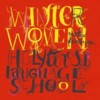 The double album solo debut from Matthew Friedberger of The Fiery Furnaces is a mixed bag that’s often exasperating. While there are great songs buried within both albums, it takes a bit of digging to find them.
The double album solo debut from Matthew Friedberger of The Fiery Furnaces is a mixed bag that’s often exasperating. While there are great songs buried within both albums, it takes a bit of digging to find them.
Winter Women’s opener, "Under the Hood at Paradise Garage," is a bit of a head scratcher. Stuttering and clunky, it’s heavy on lo-fi beats and Friedberger isn’t afraid to throw in some cheap effects. The track isn’t terribly catchy, but its construction is intriguing. Many of the songs that follow, however, lack the same quirky charm and stray dangerously into easy listening territory with a flute dogging nearly every track. Although "P.S. 213 Mini-School" is decent, the album really picks up with the last five songs, which are actually pretty good, throwing in weird arrangements and odd noises for good measure. Of these, I enjoyed "I Love You Cedric" the most because of its strange rhythm and the chiming guitar.
Holy Ghost Language School is designed to be the more experimental of the two albums. "Seventh Loop Highway" starts the album as a Beefheartian stomp but halfway through drops the guitar in favor of piano and follows a completely different muse to its completion. There are plenty of experiments to be found elsewhere on this disc, but many of them simply aren’t developed enough to warrant multiple listens. As enjoyable as the second half of the title track is, without the first half it would have been even better. Some of the songs, like "The Cross and the Switchblade," are just plain boring. "Do You Like Blondes?" engages with the strange tone of its bass and Friedberger’s spoken word accompaniment, but "Topeka and San Antonio" gets annoying quickly. After a while this disc becomes a morass of recurring motifs and approaches that tires more than it entertains.
There are enough gems between the two discs for one fantastic album, but as a double album it’s a bit of a stretch.
samples:
 
Read More
- Lucas Schleicher
- Albums and Singles
Troniks/PACrec
Every now and then I like the sound of a chainsaw working its way through three square miles of steel, rock, and animal flesh, but far too often I'm left in awe of how senseless so many of those sounds are. Choking on Grave Soil inspired a Velvet Underground moment for me, a moment where I said to myself, "I think I could do this." I'm not interested in imitating the sound necessarily, but so much of this album seems completely and totally disorganized, as though the idea of arrangement was thrown to the wind and left for dead. This lack of arrangement kills the album for me, rendering any viciousness null and leaving the attack without any edge to speak of. To his credit, Holger has organized portions of these two long tracks into moments of relative chaos and relative stability, but all of it seems intentionally messy. Parts of this album just blend together as recordings of garbage disposal sound turned up to 11 and recorded by a contact mic.
There's no doubt in my mind that the sounds Holger squeezes out of his machines are black and nasty as they come, there being no better point of reference for the sounds employed than the action of choking that the album title suggests. I wish the feeling that this album was recorded in the same amount of time that it takes to play would leave me, but it seems as though a bunch of feedback and distortion was turned up to max levels and thrown together haphazardly with no care given to their running order. All the crunching, cracking, hissing, and rumbling in the world might make for one hell of a headache-inducing experience, but it isn't enough to make a great album. In fact, this seems less like an album and more like a collection of harsh sounds people might enjoy if they were angry enough. As moments of the second track really catch my ear, I can only hope that some portions from this disc will be excavated and used on a Hive Mind release, a project where I know Holger pays as much attention to his arrangements as he does to his choice of sound.
Read More
- Administrator
- Albums and Singles
The Remote Viewer was first released as a CD-R in an edition of 500 (review here), the first disc is the exact same material as on the original release and my views mirror that of Mr. Carsten’s linked earlier in this sentence. The second disc (a 3” CD embedded in plastic to make it the same size as a regular CD, a ‘semi-substrate’ disc apparently) features two pieces created in 2006 using material from the original Remote Viewer sessions. These new pieces, predictably titled “Remote Viewing 4” and “Remote Viewing 5,” are more of the same hurdy gurdy and Breton bagpipe drones and beats that are on the original disc. There’s more emphasis on glitches and the beat on “Remote Viewing 4,” giving a more aggressive edge to the music. “Remote Viewing 5” removes most of the drone and goes the warped melody route. Both tracks are worthy additions to the album.
samples:
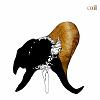 Black Antlers hasn’t been as elusive as The Remote Viewer but it is still one of those Coil limited editions that deserved a wider release. As the original version of this album was a collection of work in progress sketches (reviewed here), it is interesting to hear how Peter Christopherson and Danny Hyde have polished and updated the album. Some of the tracks have been cleaned up or, as in the case of “Wraiths and Strays,” completely replaced. This version of “Wraiths and Strays” is taken from a Paris show where Jhonn Balance was present and replaces the unBalanced Montreal version from the original version of the CD. I’ve always found the Montreal “Wraiths and Strays” fades into the background far too easily. However this Parisian incarnation of the song grabs the attention more with the hurdy gurdy and marimba adding far more depth to the piece. Not to mention Balance’s live vocals which sound desperately sad.
Black Antlers hasn’t been as elusive as The Remote Viewer but it is still one of those Coil limited editions that deserved a wider release. As the original version of this album was a collection of work in progress sketches (reviewed here), it is interesting to hear how Peter Christopherson and Danny Hyde have polished and updated the album. Some of the tracks have been cleaned up or, as in the case of “Wraiths and Strays,” completely replaced. This version of “Wraiths and Strays” is taken from a Paris show where Jhonn Balance was present and replaces the unBalanced Montreal version from the original version of the CD. I’ve always found the Montreal “Wraiths and Strays” fades into the background far too easily. However this Parisian incarnation of the song grabs the attention more with the hurdy gurdy and marimba adding far more depth to the piece. Not to mention Balance’s live vocals which sound desperately sad.
“Sex with Sun Ra (Part One – Saturnalia)” was quite rough sounding on the original album, an alarming amount of hiss permeating the mix. Nonetheless it was still the jewel of Black Antlers. I was expecting it to be cleaned up (a cleaner sounding version has been leaked online previously) but unfortunately the hiss is still there. In lighter news, the second part of “Sex with Sun Ra” has been included on the album. “Sex with Sun Ra (Part Two – Sigillaricia)” is quite different to what I expected which was a reprise of the song in a similar way to the different versions of “Teenage Lightning” on Love’s Secret Domain. It is more of a mutated remix with added Breton bagpipe. I like it but it doesn’t reach the same heights as the first part.
There is also a semi-substrate CD included that contains a couple of remixes. “Departed” is a dancier version of “Black Antlers” which isn’t doing much for me now but will probably grow on me. It lacks the claustrophobic sting of “Black Antlers.” “Things We Never Had,” takes elements from all over the Coil back catalogue (mainly using "Black Antlers" and "Sex with Sun Ra" as its base). It feels almost like a greatest hits compilation condensed into one track. It’s good but it makes me want to listen to all of the original songs instead.
Both Black Antlers and The Remote Viewer have been repackaged in attractive wallet sleeves, which are much nicer to hold than the home printed sleeves of the originals. These two albums have always warranted a better release (both in format and size of the edition) than they initially got so it is great to see these finally getting the circulation that they deserve. Granted I didn’t own a copy of The Remote Viewer beforehand but I certainly don’t feel cheated buying Black Antlers again.
samples:
Read More
- Administrator
- Albums and Singles
title: Lion Devours The Sun
catalog #: krank099
formats available: CD
Release Date: October 30, 2006
Content:
Mathew Sweet is an alchemist, having developed the powers to mysteriously transform a minimal palette of common musical elements into something extraordinary. While his work contains references to psychedelia and folk musics, it fits comfortably in neither category. His understated vocals are delivered not as declamation, but rather a muted invitation to listen to his tales of the failing human condition; a terrain of fallow fields, poisoned wells and doomed existence. All hail the messenger of truths.
Context:
Lion Devours The Sun is the first full length release from U.K. resident Mathew Sweet following his self-titled kranky debut EP released in the fall of 2005. It was recorded at home with a 4 track and a single microphone, using acoustic guitar and voice along with well placed touches of a cymbal-playing monkey, some bricks, an e-bowed autoharp, a homemade gramophone, and daggers. The title derives from alchemical imagery, the sun representing consciousness and the lion symbolizing emotion. Some of these songs contain actual invocations of demonic forces. Not really. Mathew states that "this is not folk music", and that someone told him that they think the first record "sounds humble and withdrawn and the new one sounds righteous and bitter". He agrees. The debut Boduf Songs release garnered high praise from all reviewers. He has performed limited live shows in the U.K. and Europe, and recently recorded a live session for the legendary VPRO in Amsterdam.
Quotes:
"Sweet is at once engaged and detached from the outside world, his evocative observations surreal, literate, and fatalistic..." Grooves
"Quiet revelations from an acoustic guitar, gentle male voice very nearly whispering, and the harmonic convergence of cymbals, violin bow, toy piano and manipulated field recordings." Dream Magazine
"Stark and dark psychedelia exquisitely woven by one M. Sweet. What spirits are invoked I don't know, but I imagine they are as riveted as I am to these haunted musings." Foxy Digitalis
"Picturesque and pastoral, using little more than his voice and guitar to create a vivid picture of the world around him. Only Sweet sees a world populated by very dark happenings and very dreadful ideas, all swirling, massing and waiting to descend on the world." Brainwashed
Track Listing:
1. Lord of the Flies 2. Two Across the Mouth 3. That Angel was Pretty Lame 4. Great Wolf of No Tracks 5. Green Lion Devours the Sun, Blood Descends to Earth 6. 27th Raven's Head (Darkness Showing Through the Head of the Raven) 7. Please Ache for Redemptive 8. Fall of Cherry Blossom in Long Shadows of Twilight 9. Bell for Harness
Read More
- Administrator
- Albums and Singles
ISIS AND AEROGRAMME In The Fishtank
http://www.konkurrent.nl
Upon first listen, this Fishtank session between Isis and Aereogramme
attracts attention solely for its sound. While both bands are known for
their love of metal and post-hardcore as well as experimental and
atmospheric approaches, here they not only show those skills, but also
reach an impressively high level of purity, roominess and emotion.
Putting two bands together with such different home-bases (Los Angeles
and Glasgow, respectively) in a small town near Amsterdam was a
challenge Konkurrent couldn't resist. In December 2004, the idea
grew concrete that these two bands would record in the Fishtank,
and all directions pointed to July 2005 for action. Isis had just
finished their European tour, so Aereogramme hit the road and the bands
played a warm-up show at the Amsterdam Paradiso the night before
entering the studio. When Konkurrent invited Isis and Aereogramme
to do a Fishtank session, we expected a loud and heavy session not yet
heard in the series. Expectations can be misleading.
Was it the extremely hot weather? The overwhelming 70s atmosphere in the
studio? The shitty hotel the night before? We may never know those
answers, but we know this: it's the analog warmth that makes the songs
tender, organic, and fragile. It's the unexpected that makes this a very
successful edition to us.
Tracklisting:
1. Low Tide
2. Delial
3. Stolen
Read More
- Administrator
- Albums and Singles
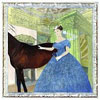 Nobody will ever convince me that the best musicians make the best music. Case in point is the newest from Daughters, a quintet of unhinged talent practically bursting at the seams with ideas, but incapable of stringing them all together in a satisfying way. There are some truly exquisite moments of furious cacophony on Hell Songs, but they're all fleeting and call the album's already brief running time into question.
Nobody will ever convince me that the best musicians make the best music. Case in point is the newest from Daughters, a quintet of unhinged talent practically bursting at the seams with ideas, but incapable of stringing them all together in a satisfying way. There are some truly exquisite moments of furious cacophony on Hell Songs, but they're all fleeting and call the album's already brief running time into question.
Hydra Head
The 10 songs that make up this splattered album only clock in at 23 minutes and some change. The songs are quick bursts of dramatic vocals, completely damaged guitars, and drums that rumble more than they keep time. Songs sort of stumble out of the gates and from there become increasingly brazen, almost drunk in their movements, and with one exception they're brief and finish as quickly as they begin. The problem arises when it quickly becomes evident that there's nothing for me to hang onto from song to song. This might as well be one long album of sonic connect the dots, but with a twist: in order to play it's necessary to try and keep up with the band's narcotic imagination. This is competitive connect the dots with a bunch of wolverines that have been fed dangerous amounts of PCP.
The band's attack is fierce, but often goofy. The doodling guitars illicit circus-like imagery, the vocalist brings to mind a strange admixture of Elvis and a carney whose side show ends with pornographic encores featuring the bearded lady and a tub of vaseline, and some of the effects sound like they belong on a record by The Locust. It's all fun and games, but fun and games that are quickly forgotten. Almost as quickly as the band ends some of its songs, I forget about them. I can recall phrases of strangeness that I like to try and imitate with my mouth and laugh about afterwards, but I can't pin them to a song or to an idea. The only lyric that sticks out in my mind is the opening line, "I've been called a sinner, wrongdoer, evil doer..." and I love how off kilter it sounds, but the sloppiness the band employs on one song is severely modified on the next track, to a point where I feel like many of these songs may not even belong together.
Despite the brevity of some of these tracks, many of them could be edited down even further. "Providence by Gaslight" has two or three wonderful sections to it that come immediately to mind and, in fact, it's one of the only songs that sticks out in my mind. Running just under the two minute mark, there's probably a solid 45 seconds of nonsense that could be cut out. Not only would it give the music a more immediate flavor, it'd cut away the messy stuff that sounds like filler for the rest of the song. It's as though the band asked themselves, "how can we get from point A to point B without actually connecting the two parts together?" Other songs suffer the same problem, but at least "Providence by Gaslight" has a melody and a rhythm section that are memorable. Maybe other musicians will appreciate this more than I can, but as it stands this is showy technical metal that never escapes its technical side.
samples:
Read More
- Administrator
- Albums and Singles
 This is the debut from a trio who could easily be considered the supergroup of strings for Montreal. Sophie Troudeau's name should be familiar to anybody who follows Godspeed You Black Emperor, Silver Mt. Zion, or Kiss Me Deadly; Genevieve Heistek's name is on Molasses, Hangedup, and Set Fire to Flames releases; and Beckie Foon has also worked in Silver Mt. Zion and Set Fire to Flames, as well as being one half of both Fifths of Seven and Esmerine.
This is the debut from a trio who could easily be considered the supergroup of strings for Montreal. Sophie Troudeau's name should be familiar to anybody who follows Godspeed You Black Emperor, Silver Mt. Zion, or Kiss Me Deadly; Genevieve Heistek's name is on Molasses, Hangedup, and Set Fire to Flames releases; and Beckie Foon has also worked in Silver Mt. Zion and Set Fire to Flames, as well as being one half of both Fifths of Seven and Esmerine.Each of the four pieces were recorded in a different location with a different crew. The first, "Sequences of a Warm Front" is the longest, taking up just over a half of the 23 minute long release as a 12-minute epic string piece. Recorded at the infamous Hotel2Tango in 2003/2004 It works in approximately three movements: a pleasant but droney intro builds for about three minutes before leading into a hurried frenzy. As it approaches the five minute mark, it's like listening to the score for Psycho, but they gradually stretch out their phrases one by one until the nine minute mark, where the trio are deftly playing with a sort of minor key modality Silver Mt. Zion and Set Fire to Flames fans will connect with.
The next three are much shorter but no less epic: "Low Pressure Phenomena," recorded in Montreal by Harris Newman is very attacking at first but in less than three minutes unravels into a gorgeous piece of multitextural beauty; "Thunderheads and Radar" is more avant-compositional, opening with Foon's cello, passing the baton to Heistek's viola, and coming back to a cello-driven piece with only the decorations of Troudeau's violin; and "Line Squall" ends the release with a punchy and upbeat but dissonant jam, which is also nice, but it almost reminds me what's missing.
This isn't chamber music for stuffy concert halls or aristocratic patios: it's string music for, lack of better term, the rock audience. However, four string-only pieces in a row isn't the easiest thing to sit through if the demands it makes on its listeners are that which command the attention of something like a rock performance. The music is well composed and and all the players are clearly quite dextrous but there's a hook missing somewhere. Perhaps these songs could use to be nestled into either a minimal various artist compilation or split release where somebody like Triple Burner could trade off with guitar and drum songs, all coming together in the end for some mutual moments of ecstasy.
samples:
Read More
- Administrator
- Albums and Singles
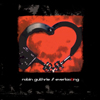 Over the course of only four songs, this former Cocteau Twin has managed to rope me back into being a fan after Continental—the disappointing LP released earlier this year, also on Darla.
Over the course of only four songs, this former Cocteau Twin has managed to rope me back into being a fan after Continental—the disappointing LP released earlier this year, also on Darla.
Darla
Continental was a very sad album to listen through start to finish. To me it was like listening to somebody whose heart ached for that special someone to return and fill the void left behind when they departed. There was an emptiness right down the middle where something else belonged. While Robin is not joined by a lead vocal for Everlasting, there's a considerable amount of space filled in, making these four songs a far better listen than the 10 on the LP.
"Bordertown" opens the EP with a lush texture, and although it's rich and serene, the melody is quite repetitive and unjoined by opposing elements before the refrain. "Fountain," the other upbeat song on the disc has the sprinklings of organ and keyboard sounds that are new for me to hear on his works, and not offensive in the least. Guthrie is a fantastic gearhead: he still manages to achieve the best sounds possible and finds the perfect balance between all of the elements. As a composer, however, he is clearly still holding on to the verse-chorus-verse school of songwriting, which isn't necessarily a bad thing, but if there's anything we've learned from the 1990s is that there are more challenging approaches to take when left without a singer.
While it's far more enjoyable than Continental, the problem still remains: there's no denying this sounds like a Cocteau Twins record without Simon and Liz. Although the music has more counter-melodic elements, even on the sparse closer "Everlasting" and the Victorialand-era sounding "A Sigh Across the Ocean," the sing-along-ability of a lead instrument is simply not here as well as the chugging bass lines which drove the best Cocteau Twins songs. It kind of makes me wonder if all these songs from the LP and EP weren't started in the hopes for a Cocteau Twins reunion following that ill-fated live festival appearance which never took place.
I do have hope, however, as it sounds like Robin may have accepted the fact that Continental sounded very lonely. He's joined on Everlasting by collaborators on three out of four songs, so with any luck this trend will continue and something magnificent will come out of him. I'm not giving up.
samples:
Read More
- Administrator
- Albums and Singles
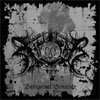 Black metal has officially disintegrated and transformed into a genre that's as deserving of the adjective "metal" as it is of "ballet." Malefic's dense, foggy, and self-abusive Xasthur project might feature guitars, unintelligible vocals, and all the drama a high school student could ask for, but it is a creature deserving of its own musical kingdom. All the Sunn O))) relationships and mentions of Darkthrone in the world won't make this a metal album.
Black metal has officially disintegrated and transformed into a genre that's as deserving of the adjective "metal" as it is of "ballet." Malefic's dense, foggy, and self-abusive Xasthur project might feature guitars, unintelligible vocals, and all the drama a high school student could ask for, but it is a creature deserving of its own musical kingdom. All the Sunn O))) relationships and mentions of Darkthrone in the world won't make this a metal album.
Hydra Head
Where guitar solos may have once reigned supreme, atmospheric use of heavily distorted guitar riffs and choral keyboards now stand proud. Where the once mighty explosion of double-bass barrages declared the rhythmic brutality of many metal acts, slow and precise drum machines now plod away and leave only heavy, recognizable tracts of groove in their paths. Black metal has always been a distant cousin to death metal, heavy metal, thrash, and all the various permutations that the name "metal" has given a home to; it was intended to be that way. There was always a recognizable link between black metal and its relatives, though, especially in the early days where some bands were mistaken for thrash or death metal when said bands meant to fly that black metal flag proudly. Malefic, however, has a mind to leave all that nonsense behind. His music isn't metal, it may not even be recognizable as black metal, but it is heavy and dark and for that reason most people probably won't care what it's called.
Malefic's attitude towards composition, melody, and rhythm, however, put him at a great distance from other head-pounding numbskulls who swear allegiance to racial pride, religious absolutism, and/or misogyny. His sense of space and openness make Subliminal Genocide a pleasure to hear, much less painful than I suspect he imagines it. "Disharmonic Convergence" opens the album with a lo-fi recording of a piano layered with the sound of human voices and thick reverberation. It's a soupy, thick arrangement that serves only as an introduction to the massive "Prison of Mirrors," the album's proper opening song. It runs nearly 13 minutes and kicks off with a vicious scream that announces the pain Malefic evidently feels just as well as his song titles do (with names like "Beauty Is Only Razor Deep" and "Arcane and Misanthropic Projection" can there be any doubt what these songs are about?). The drums are buried deep in the mix, less important than the slush of guitars and keyboards that clearly move together to form a kind of wall of melody. It's powerful, loud, and demented, yet it's clearly well developed, with peaks and valleys full of quiet interludes and giant swells. If anything this is a chamber piece for guitars, keyboards, and effects, not merely metal.
Malefic's voice sounds excellent and the people who fell in love with his performance on Sunn O)))'s Black One will be doubly pleased by his efforts on Subliminal Genocide. It's rocky, completely from the throat, as though he's been gargling quicksand and concrete for hours at a time before singing. The aforementioned "Arcane and Misanthropic Projection" features one of the nastiest vocal performances I've ever heard, Malefic sounding as though he's being tortured slowly by the noise surrounding him. That song, too, completely flies over the head of black metal and soars off into it's own territory. I just can't bring myself to imagine this as metal performance; the theatrics and enormous range of ideas that the Xasthur project employs don't exactly fit well into any category I can think of. The almost acoustic interludes and classical themes that this album contains has more in common with some of Burzum's more oddly ambient tracks, but are also far more musical and less repetitive. The bleak attitude Malefic takes might, for some, place him in the same league as other long haired, corpse paint sporting, wizard obsessed wankers, but his vocal performances, melodic sensibilities, and his understated, simple, and effective arrangements place him far ahead of almost every black metal band I've ever heard. That's because Xasthur is willing to incorporate more influences into his music than any of his contemporaries are. As such he's a hell of a lot more exciting and lot more interesting to listen to.
samples:
Read More
- Administrator
- Albums and Singles
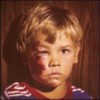 With songs about drowning, roadkill, and nails in the head, the second album from Made Out of Babies finds the group assaulting the ears, leaving welts and bruises as tokens of affection.
With songs about drowning, roadkill, and nails in the head, the second album from Made Out of Babies finds the group assaulting the ears, leaving welts and bruises as tokens of affection.
Pummeling and abrasive, the album opens with a piercing scream that incites the band to unleash their fury. The guitar is crisp and angular, the bass nasty and gutteral, and the drums quicken the pulse with stringent emphasis. The band excels at switching gears with tempo changes and noisy asides that invigorate the main riffs when they return.
Because of the tone of the guitars, the fullness of the drums, and the structure of some of the songs, my first impression was that the group takes more than a few cues from The Jesus Lizard, although some of that can be attributed to the way Steve Albini recorded and mixed this material. Yet the band is far from merely imitative and has a strong sense of dramatic delivery to complement the vocals of singer Julie Christmas, and it’s her stylistic variations that give the songs their personality. Not only does her melodic approach change from song to song, but she also never rests on formula or cliché for articulation. In addition to having a number of different screams at her disposal, she’s seemingly possessed by evil spirits on “Mandatory Bedrest,” and whispers child-like on the beginning of “Death in April.” On “Out” she proves she’s not afraid to shred her vocal cords for the sake of the song. One of the tracks is a brief, instrumental lullaby that provides respite before the storm continues on “Mr. Prison Shanks,” with its weirdly beguiling riff. “Gunt” starts slow and brooding before the band erupts for the album’s harrowing finale.
The group isn’t afraid to take chances, from the songwriting to the cringe-inducing cover art, and it’s a risk that pays dividends. As unsettling as their exploration of dark subject matter can be, it’s also perversely pleasurable and cathartic.
samples:
Read More
- Administrator
- Albums and Singles
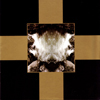 Processed sound of this nature pales in comparison to what z'ev has done in the past. The album begins with a bang, thrusting an assault of metallic sound out of the speakers immediately. As it progresses, and true to the rather esoteric liner notes, this symphony of sorts descends into a calm stillness that does not grab my attention in the same way that much of z'ev's work has before.
Processed sound of this nature pales in comparison to what z'ev has done in the past. The album begins with a bang, thrusting an assault of metallic sound out of the speakers immediately. As it progresses, and true to the rather esoteric liner notes, this symphony of sorts descends into a calm stillness that does not grab my attention in the same way that much of z'ev's work has before.
Blossoming Noise
Despite the brutish entry "First Movement" makes, Elementalitiesis undoubtedly a more polished and reserved recording than anything I've heard from this multi-faceted percussionist. The source material for this album is from a performance in October of 1990 at the Wang Concert Hall in Amsterdam. It was originally released by Soleilmoon and is here reconsidered by z'ev. The information provided in the rather beautiful and austere booklet relates a connection between the music and the first thirteen verses of Proverbs Chapter 30, which z'ev refers to as "The Oracle of Blood." References to the number 1440 also suggest some relation between this recording and the sometimes mystical attitude taken towards numbers in religion. Each of the movements is provided a single page full of text and each of these pages makes some reference to a mysterious "Her," perhaps of an animal nature. All of the text fits quite nicely with z'ev's processed drums, echoed rattles, and deep reverberations, but it's difficult to understand just how closely they tie into the original performance. There is a sense that z'ev is trying to say something about the nature of re-approaching music and establishing some new connection with it. That connection, however, is never clearly defined nor explained.
The music itself seems stationary, confined to the same series of movements for the duration of its existence. It sounds as though all of the percussive energy z'ev normally releases has been amassed into the same place and allowed to roll down a very steep hill. Sounds unfold out of each other, all of them primarily metallic, but it's difficult to discern just how much of the source material has been edited and how much has been left alone. What is evident is that the music begins to sound tame at some point, turning inward instead of exhibiting the kind of bombast I've heard from z'ev, especially the material available on the collection One Foot In the Grave. Many of the percussive sounds that would have jumped or stung had they been left untouched now sizzle and rumble, unraveling where they might have attacked.
It isn't completely unsatisfying, however, but it is a bit surprising to hear z'ev work in this mode. By "Ninth Movement" it is unclear whether or not this is meant to keep my attention or provide background sound for some other purpose. It is enjoyable, but not ear catching, and it certainly feels less tangible or immediate. The jump from unprocessed, purely percussive performance to edited and processed sound steals an edge away from z'ev that I didn't even recognize as primary to his work until now.
samples:
Read More


